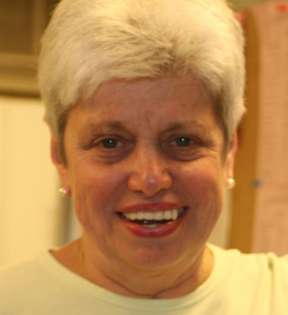June 30, 2016 9:34 am The Life-Changing Experience of Cleaning Up
Many 3 and 4-year olds enter nursery school with no concept of cleaning up. At home, they have dolls, art materials, costumes, trains, trucks, balls, puzzles, games, books. They play everyday. Why are they so unfamiliar with clean up? One answer? Someone else is doing it for them.
For other children, cleaning up means throwing things into a toy box with every item jumbled up with everything else. So when they start nursery school, and the room has no all-purpose toy box, they have no idea what to do when the teacher announces, “Clean up Time!”
Clean up is an important part of each day in school life. It teaches skills that are essential, not only at the time, but later on as well. Sorting is a math skill that is easily practiced at clean up time. The wooden blocks go on the block shelves, the dolls in the dramatic play area, the trucks on the truck shelf, puzzles in puzzle racks, books in book baskets and so on. Taking sorting and categorizing to an even more nuanced level, there is a unique place on the block shelf for each size and shape of wooden block. Legos are kept in a separate bin. Crayons, colored pencils, markers and paintbrushes all have their individual containers. Although many different play items go in the dramatic play area, the plastic food goes in baskets, the pots and pans in the pretend oven, the dishes in a cupboard, dress up clothes on hooks. All of these distinctions help children to think carefully about what they are doing, to recognize the function of all materials in their classroom, and to recreate order out of chaos.
Besides the ‘academic’ value of clean up, there are important social lessons to be learned. One is responsibility: the child learns to care for materials and to clean up after herself. Another is citizenship, because clean up is a communal activity in which the group brings order back to their own space, and afterwards can feel good about their accomplishment. Cleaning up gives children the confidence and self-esteem that comes from a problem solved. Rather than feeling overwhelmed, they know, “I can do it.” A child who shirks clean up is noticed, not only by the teachers, but by the other children, who realize he is not pulling his weight, not being a good citizen of the community.
Imagine a class of twelve (or more) children who have been engaged in all areas of the classroom for over an hour. Imagine toys and materials everywhere – block structures, puzzles, all manner of vehicles, scraps of paper on the floor — tables covered with drawing and writing materials, playdoh and watercolors — everything out in the dramatic play area — books scattered here and there. It seems an insurmountable task and it will be until the children are taught how to clean up. Adults have to direct and help, giving instruction while modeling how it is done. At first children need specific tasks. “Can you put the trucks on the shelf?” Would you please pick up 10 scraps of paper?” “Can the three of you work on putting away the wooden blocks?” Demonstrations are necessary. “Is it okay that I’m stuffing the dress up clothes behind the couch?” “Should the dolls go in the oven?” “Does a puzzle go in the book basket?” The adults must give consistent lessons, shower abundant praise on hard workers, and offer extra encouragement to get the shirkers going.
Children get really good at clean up. They know they can quickly turn total chaos into perfect order. They are proud of their ability. They become efficient and responsible citizens of their classroom and enjoy the whole process.
If you would like clean up to happen at your home, too, you can take steps to make your child competent at the process. First, throw out the ubiquitous toy box, buy smaller baskets and put up some shelves. Add a few cheerful lessons with modeling from an adult, and a great big dose of praise when the room is clean again. You will be amazed at what your child can do, and so will he. Clean up skill is a lifetime gift that promotes confidence, responsibility and a sense of order.
Marianne Riess is the former head of the Putnam Indian Field School in Greenwich, CT. She has 40 years of experience in working with young children.


